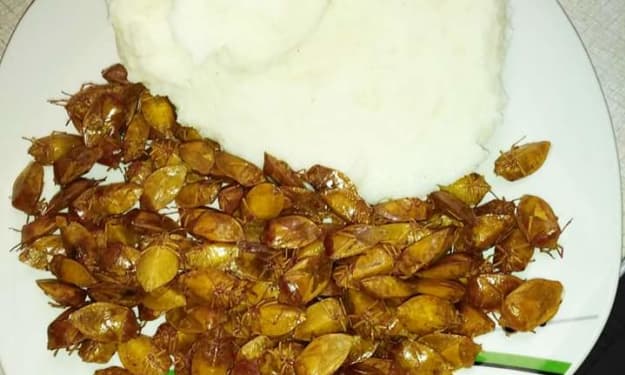The Best Foods for Weight Loss: Incorporating Nutrient-Dense Options into Your Diet
The Best Foods for Weight Loss

I.Introduction
Weight loss is a common goal for many people, and choosing the right foods is a critical aspect of any weight loss journey. While it is possible to lose weight by cutting calories, it is equally important to focus on the quality of the foods you eat. Nutrient-dense foods are an excellent option for anyone looking to lose weight and improve their overall health. Nutrient-dense foods are foods that are low in calories but high in essential vitamins, minerals, and nutrients. Unlike calorie-dense foods that provide a lot of calories but little nutritional value, nutrient-dense foods help fill you up without weighing you down. In this blog, we will explore the definition of nutrient-dense foods, the benefits of incorporating these foods into your diet, and a list of the top nutrient-dense foods for weight loss. The goal of this blog is to provide you with practical tips and information on how to incorporate nutrient-dense foods into your daily diet to support your weight loss goals. Whether you are a beginner or a seasoned pro, this guide will provide you with the knowledge and resources you need to make informed choices about the foods you eat.
A. Importance of Choosing the Right Foods for Weight Loss:
When it comes to weight loss, it is not just about the number of calories you consume, but also about the quality of the foods you eat. Eating nutrient-dense foods not only supports weight loss but also provides your body with essential nutrients it needs to function optimally. Consuming a diet that is rich in nutrients, vitamins, and minerals will keep you feeling fuller for longer, which can help reduce the urge to snack on unhealthy, calorie-dense foods.
In addition to supporting weight loss, consuming a diet that is rich in nutrient-dense foods has numerous other health benefits. These foods can help lower your risk of chronic diseases such as heart disease, type 2 diabetes, and certain types of cancer. They also support a healthy gut, improve skin health, and boost your immune system.
B. Explanation of Nutrient-Dense Foods:
Nutrient-dense foods are foods that are low in calories but high in essential nutrients, vitamins, and minerals. Unlike calorie-dense foods that provide a lot of calories but little nutritional value, nutrient-dense foods help fill you up without weighing you down. These foods provide your body with the necessary building blocks it needs to maintain optimal health and support weight loss. Some examples of nutrient-dense foods include leafy greens, berries, avocados, nuts and seeds, fatty fish, and whole grains.
II.Understanding Nutrient-Dense Foods
A. Definition of Nutrient-Dense Foods:
Nutrient-dense foods are foods that are low in calories but high in essential nutrients, vitamins, and minerals. These foods provide your body with the necessary building blocks it needs to maintain optimal health and support weight loss. Examples of nutrient-dense foods include leafy greens, berries, avocados, nuts and seeds, fatty fish, and whole grains.
B. Comparison of Nutrient-Dense and Calorie-Dense Foods:
Calorie-dense foods are foods that are high in calories but low in essential nutrients, vitamins, and minerals. Examples of calorie-dense foods include sugary drinks, candy, and fast food. These foods provide a lot of calories but little nutritional value, which can lead to weight gain and other health problems.
In comparison, nutrient-dense foods provide fewer calories but more essential nutrients, vitamins, and minerals. These foods help fill you up without weighing you down, making it easier to maintain a healthy weight and support weight loss.
C. Importance of Choosing Nutrient-Dense Foods for Weight Loss:
Choosing nutrient-dense foods over calorie-dense foods is essential for anyone looking to lose weight and improve their overall health. Consuming a diet that is rich in nutrients, vitamins, and minerals will keep you feeling fuller for longer, which can help reduce the urge to snack on unhealthy, calorie-dense foods.
Incorporating nutrient-dense foods into your diet can also support weight loss by increasing your metabolism and helping to regulate your appetite. These foods are also lower in calories, which can help you control your overall calorie intake. Furthermore, consuming a diet that is rich in nutrient-dense foods has numerous other health benefits, including reducing your risk of chronic diseases, improving skin health, and boosting your immune system.
III. Top Nutrient-Dense Foods for Weight Loss
A. Leafy Greens:
Leafy greens, such as spinach, kale, and lettuce, are an excellent source of essential vitamins and minerals. They are also low in calories, making them an ideal food for anyone looking to lose weight. Leafy greens are also high in fiber, which helps keep you feeling full for longer periods of time. In addition to supporting weight loss, consuming leafy greens can also lower your risk of chronic diseases such as heart disease and type 2 diabetes.
B. Berries:
Berries, such as blueberries, strawberries, and raspberries, are another excellent source of essential nutrients, vitamins, and minerals. They are also low in calories, making them a great option for anyone looking to lose weight. Berries are also high in antioxidants, which can help reduce inflammation in the body and lower your risk of chronic diseases.
C. Avocados:
Avocados are a nutritious food that is rich in healthy fats, fiber, and essential vitamins and minerals. They are also low in calories, making them an excellent option for anyone looking to lose weight. Avocados can help keep you feeling full for longer periods of time, which can reduce the urge to snack on unhealthy, calorie-dense foods.
D. Nuts and Seeds:
Nuts and seeds are a great source of healthy fats, fiber, and essential vitamins and minerals. They are also low in calories, making them an ideal food for anyone looking to lose weight. Nuts and seeds can help keep you feeling full for longer periods of time, which can reduce the urge to snack on unhealthy, calorie-dense foods.
E. Fatty Fish:
Fatty fish, such as salmon, mackerel, and sardines, are an excellent source of omega-3 fatty acids, which have numerous health benefits. They are also low in calories, making them a great option for anyone looking to lose weight. Fatty fish can help reduce inflammation in the body, lower your risk of chronic diseases, and improve heart health.
F. Whole Grains:
Whole grains, such as brown rice, quinoa, and whole grain bread, are an excellent source of fiber, essential vitamins, and minerals. They are also low in calories, making them a great option for anyone looking to lose weight. Whole grains can help keep you feeling full for longer periods of time, which can reduce the urge to snack on unhealthy, calorie-dense foods. Consuming whole grains can also lower your risk of chronic diseases such as heart disease and type 2 diabetes.
IV. How to Incorporate Nutrient-Dense Foods into Your Diet
A. Meal Planning and Preparation:
Meal planning and preparation is a great way to ensure that you are incorporating nutrient-dense foods into your diet. Start by making a list of the nutrient-dense foods that you would like to include in your meals and snacks, such as leafy greens, berries, avocados, nuts and seeds, fatty fish, and whole grains. Then, plan your meals and snacks around these foods, using them as the main ingredients in your dishes. When grocery shopping, be sure to stock up on these foods so that you have them on hand for meal preparation.
B. Snacking on Nutrient-Dense Foods:
Snacking is an excellent way to add extra nutrition to your diet and can also help control your appetite and prevent overeating at mealtime. Instead of snacking on calorie-dense, processed foods, try snacking on nutrient-dense options such as berries, nuts and seeds, or a small piece of avocado. These foods are low in calories but high in essential vitamins, minerals, and nutrients, making them a great choice for anyone looking to lose weight.
C. Swapping Calorie-Dense Foods for Nutrient-Dense Options:
Swapping calorie-dense foods for nutrient-dense options is a simple and effective way to improve your diet and support weight loss. For example, try swapping a calorie-dense breakfast of sugary cereal and milk for a nutrient-dense breakfast of eggs and whole grain toast with avocado. When eating out, try to choose nutrient-dense options, such as a salad with fatty fish, instead of calorie-dense options like a burger and fries.
D. Experimenting with New Nutrient-Dense Recipes:
Experimenting with new nutrient-dense recipes is a fun and delicious way to incorporate more of these foods into your diet. Try new recipes that feature leafy greens, berries, avocados, nuts and seeds, fatty fish, and whole grains. You can also look for recipes that combine multiple nutrient-dense foods into one dish, such as a salad with mixed greens, berries, nuts, and fatty fish. With so many delicious and nutritious options available, incorporating nutrient-dense foods into your diet has never been easier or more enjoyable.
In conclusion, incorporating nutrient-dense foods into your diet is an essential part of a healthy and balanced diet. Whether you are meal planning and preparing, snacking on nutrient-dense foods, swapping calorie-dense options for nutrient-dense options, or experimenting with new recipes, there are many ways to make these foods a regular part of your diet. By choosing foods that are low in calories but high in essential vitamins, minerals, and nutrients, you can achieve your weight loss goals and improve your overall health and well-being.
V. Conclusion
In conclusion, incorporating nutrient-dense foods into your diet is an essential part of a healthy and balanced diet. By choosing foods that are low in calories but high in essential vitamins, minerals, and nutrients, you can achieve your weight loss goals and improve your overall health and well-being. Whether you are meal planning and preparing, snacking on nutrient-dense foods, swapping calorie-dense options for nutrient-dense options, or experimenting with new recipes, there are many ways to make these foods a regular part of your diet. So, take the first step towards a healthier you by making the switch to nutrient-dense foods today!






Comments
There are no comments for this story
Be the first to respond and start the conversation.